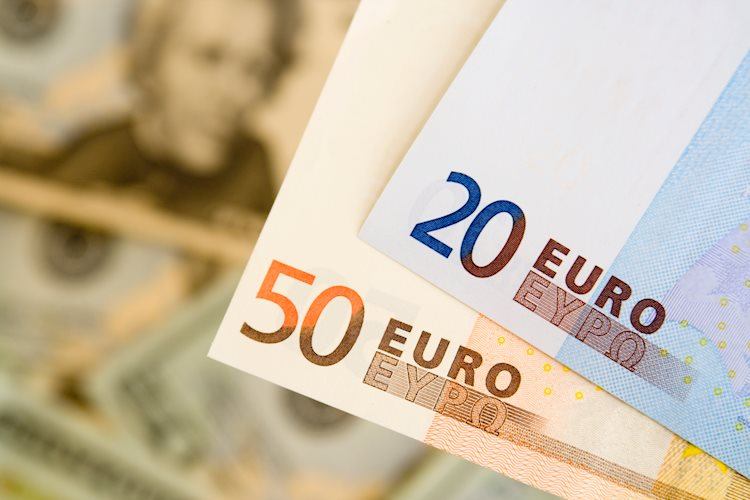Climate change threatens the prosperity of the entire planet, creating a major common challenge that governments, society and entrepreneurship, to the extent and in their own ways, are called upon to manage, to ensure sustainability, the Association of Businesses and Of Industries (BSE) in its Special Report on the Economy and Business.
According to the report, “this threat, although global, affects each region differently. For example, Europe is warming more than average and the European South is documented to be burdened more than the European North.
The need for global action on mitigation, adaptation and resilience to climate change has already been articulated by the 1997 Kyoto Protocol. limiting global temperature rise to 2oC and preferably to 1.5oC “. However, the global emissions of ATT by 2030 are estimated to increase by 16% compared to 2010 under the current framework.
At the 26th United Nations Conference on Climate Change (COP26), held from 1 to 12 November 2021 in Glasgow, the aim was, inter alia, to meet two preconditions for the implementation of the Paris Agreement: to agree on common acceptable rules for coal pricing and convergence between each country’s targets, as several of the countries with the largest shares of global ATP emissions either do not make clear commitments to reduce them, or commit to a horizon longer than 2050 (D0 ) “.
THE Dimitris Papalexopoulos, Chairman of the Board On the occasion of his presence at COP26, he said: “At the UN Climate Conference (COP26), some important steps have been taken for better cooperation between states in the critical dimensions of the effort to tackle climate change. What is important now is the rapid implementation of what has been agreed, in order to achieve emission reductions, while ensuring an effective mechanism for preventing carbon leakage, a development that would cost jobs, investment and exports, with no environmental benefits.
BSE and the business world firmly support the EU’s climate ambition.
We want a zero-emission society and we believe that this is possible by making big changes in all areas of human activity. We believe that Greece and its companies can come out significantly strengthened by the European Green Agreement, which is a model for dealing with this crisis. “Businesses have a crucial role to play in tackling climate change, and we need to transform them immediately and effectively to ensure a fair transition for all.”
Europe ‘s essential commitment to tackling climate change
In COP26, the EU has achieved a reduction of ATP emissions in 2020 by 31% compared to 1990, ie having exceeded the target set in accordance with the Kyoto Protocol, and with an updated legally binding, through the European Climate Law, target for climate neutrality by 2050. The full framework is outlined in the Green Agreement (see the relevant BSE Special Report here), while commitments to increase the intermediate target for reducing ATF emissions from 43% to 55% by 2030 are described in the recent “Fit” package for 55 “.
With the above, the EU sets intermediate targets for 2040 that the European Commission will specialize in 2023 -2024 by establishing an indicative “carbon budget”, ie the maximum amount of emissions that the EU can emit. by 2050 without threatening to live up to its commitments. At the same time, the EU will evaluate its collective course as well as the coherence of national measures (D07) in achieving its objectives.
Businesses and the need to avoid carbon leakage
The companies support in practice the European commitment to tackling climate change, as evidenced by the results so far from the Emissions Trading Scheme (ETS). However, as the gap between Europe’s climate targets and those of other countries increases, so does the competitiveness of companies that incur the relevant costs. The transfer of production outside the EU in countries without (or with lower) environmental commitments (risk of “carbon leakage”) is already taking place and is expected to intensify, to the detriment of the European economy and society and the achievement of the goal of the Paris Agreement.
Greece is fulfilling its commitments under the Kyoto Protocol, has doubled the contribution of Renewable Energy Sources (RES) from 10% to 20% in the last decade and is committed to eliminating lignite plants from electricity generation by 2028 Next is the revision of the National Energy and Climate Plan (ESEK), in the context of the new European targets and the adoption of the National Climate Law. However, it faces significant challenges, and the country’s increased exposure to the risk of carbon leakage due to its geographical location stands out.
A triple goal to be achieved: Climate ambition, fair transition, business competitiveness
The sectors exposed to the risk of carbon leakage in the country, produce 27% of the Gross Value Added (GVA) of manufacturing and employ about 57 thousand workers or 16% of total employment in manufacturing. These are sectors with strong extroversion, with their share of exports amounting to close to 50% of the country’s exports of goods, high capital intensity and high labor productivity – characteristics that are in demand for the new model of sustainable development in Greece.
From a BSE Council study on Sustainable Development in collaboration with IOBE, which is in progress, the first results show that the cement, aluminum, iron and steel and oil refining sectors will seek the supply of 11 million additional emission allowances by 2035 It is estimated that an additional 13.2 million allowances will be required for all the “carbon leak” industries. With the possible assumption that the cost of the emission allowance will gradually rise to € 100 per tonne of CO2 in 2035, this implies a burden of € 1.1 billion and € 1.3 billion respectively.
Should the compensation scheme for the cost of emissions of electricity consumed change in the future, the share of coal costs in production costs will increase further for the electricity-intensive industries.
At the same time, competing non-EU competitors will be charged with coal costs through the implementation of the Carbon Border Adjustment Mechanism (NPT), only for the production shares they import into the EU. Overall, it is estimated that the effects will be similar to those estimated by an IOBE study on de-ligation in the regions of Western Macedonia and Megalopolis, which speak of a reduction of annual GDP by € 1.6 billion in 2029 and a reduction of employment by 19.2 thousand jobs.
The risk of carbon leakage makes it difficult to change the country’s production model
It is therefore particularly important for our country to participate in the dialogue for “Fit for 55” with a view to the balance in the three pillars of responsibility and provided, ensuring that Greek companies can claim a share in global competition on equal terms of climate costs:
Maintaining the current allocation of allowances. A further reduction in allowances in the current period is a strong and irreversible blow to competitiveness which, at the same time, creates uncertainty about the high-cost and slow-depreciation investment decisions required by the green transition. Maintaining free distribution is estimated to reduce the deficit to 8.1 million versus 13.2 million allowances.
-Supplementary operation of the NSRF with the ETS, until the former proves sufficient but also effective in equalizing the cost of carbon between European and non-EU producers. A significant weakness in this direction is the exclusion of exports from the mechanism to date, the inability to confirm the cost of coal production outside the EU. and the possibilities of bypassing it by importers.
-Prevent the activation of the cross-sectoral correction factor that may be caused by the revision of the ETS, utilizing the possibilities provided in the mode of operation of the ETS (eg utilizing the existing reserve).
-Revision of the ETS in the direction of a fairer distribution of burdens and setting goals in sectors outside the ETS. The emissions covered by the ETS amount to about 40% of the total emissions of ATE in the EU, while so far, the sectors covered by the ETS have contributed proportionally more to the reduction of the total emissions of TPA compared to the sectors outside the ETS.
.
Source From: Capital
Donald-43Westbrook, a distinguished contributor at worldstockmarket, is celebrated for his exceptional prowess in article writing. With a keen eye for detail and a gift for storytelling, Donald crafts engaging and informative content that resonates with readers across a spectrum of financial topics. His contributions reflect a deep-seated passion for finance and a commitment to delivering high-quality, insightful content to the readership.






